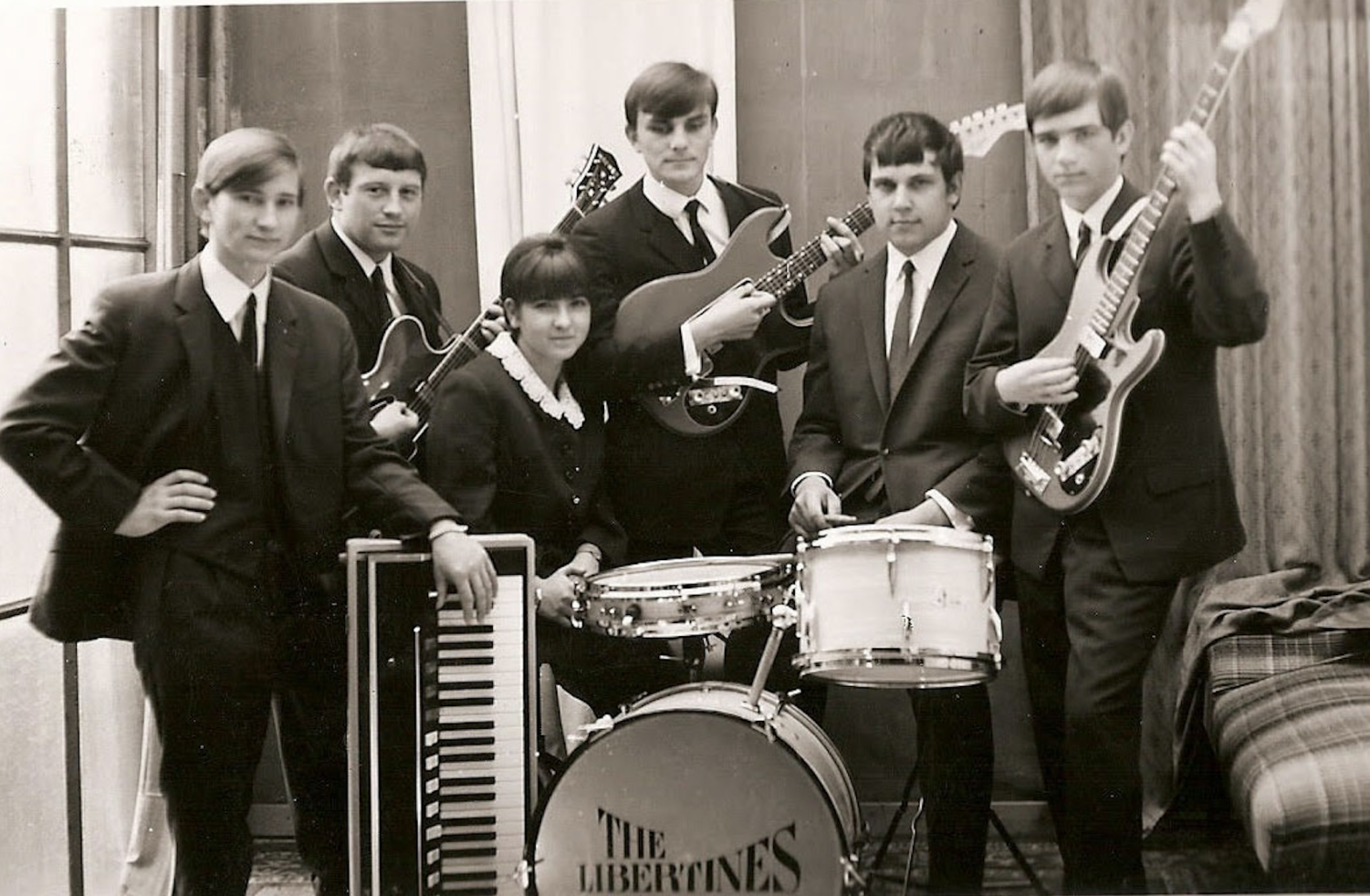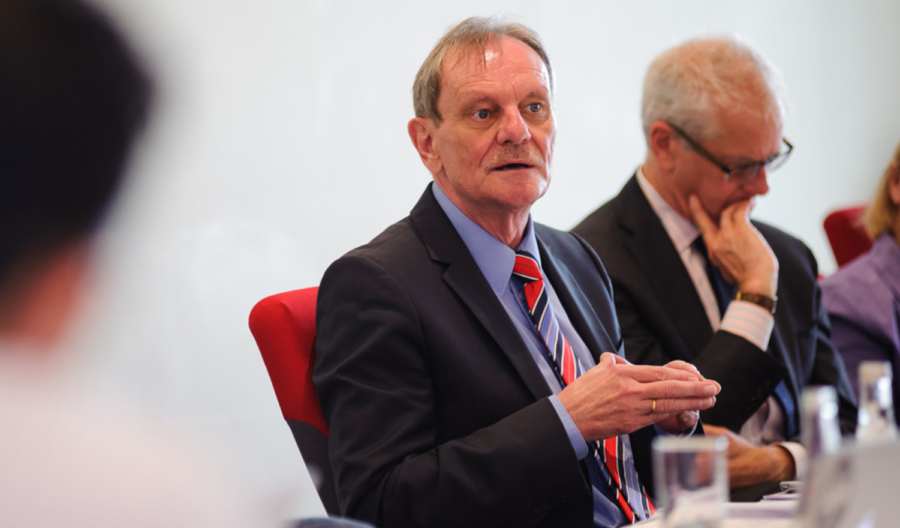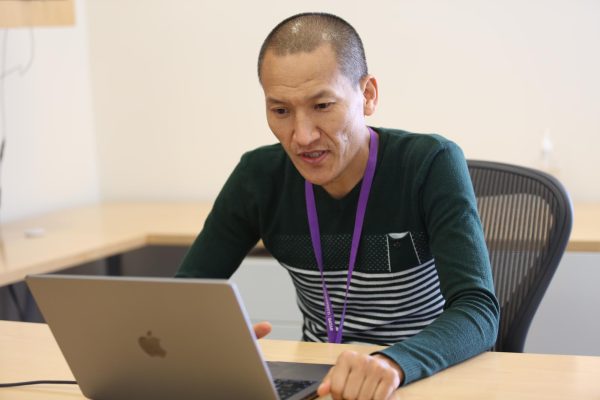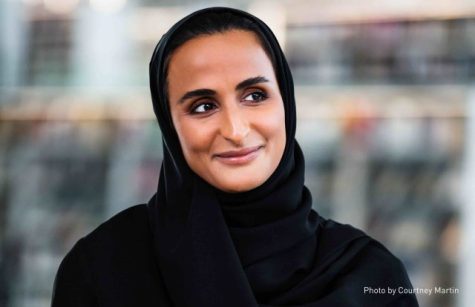Klaus Schoenbach: A Story of Beatlemania
As the fall semester ended, Klaus Schoenbach, senior associate dean at Northwestern University in Qatar, bade farewell to his time in Doha. Schoenbach was previously the associate dean for research at NU-Q and had partaken in various research activities at the university, including leading the 2016 media industries in the Middle East research.
Schoenbach had been at NU-Q for four years, yet his inner rock star remained largely hidden—for behind the intellectual soft-spoken German man is a hard-core fan of The Beatles and a previous rock band member.
Schoenbach was once a rhythm singer in a rock band called The Libertines. “[The Libertines] sounded like Liverpool, the British city with the ‘Liverpool Sound’ and where our idols came from—The Beatles,” he said. He was 18 years old when he and his band members were supposed to follow their idols’ footsteps and record their first album, but the company they had contracted with went bankrupt three weeks before the group was due to begin recording.

“That changed my life. Who knows, maybe I would have been a famous rock star,” said Schoenbach, chuckling. Although he could not record his first album, he said he still plays The Beatles’ songs on his guitar every night. He has a collection of nine guitars, including an acoustic and an electric guitar he bought in Qatar.
Schoenbach passed on his love for music to his daughter Christina, who is now an opera and classic music singer and a member of a jazz band, as well as his obsession with The Beatles. “She knows all The Beatles’ songs, although, she was not born when they broke apart. We sing along together, I play the guitar and she sings a song or I sing with her,” he added.
Schoenbach loves reading novels, short sorties and anything related to the Roman Empire. His curiosity, the driving factor behind his love for reading, has not gone unnoticed by his colleagues.
“His excitement about learning new things is infectious. In academic language, we would say that Klaus Schoenbach scores very high in epistemic curiosity, and he has a very strong drive to learn new things, and share those things with other people,” said Justin Martin, an associate professor in journalism at NU-Q.
Schoenbach’s curiosity does not just extend to his love for reading, but also to his interest in languages. He is fluent in German, Dutch and English and proficient in Spanish and Latin. He also knows how to read and write in Arabic, but he has not learned how to speak it because he is not surrounded by native Arabic speakers in his day-to-day dealings in Qatar, he said.
Schoenbach said his curiosity led him to communication research. While studying journalism at the University of Mainz in Germany, he met a professor who introduced him to communication research. He became interested in the rules of communication and audience behavior.
“[The professor] kind of changed my life because she made me aware of communication research. Not writing myself, but doing research about journalistic writing and audiences,” he said.
To continue his career in communication research, Schoenbach moved with his family to the Netherlands in 1998, where he became the chair of the communication department at the University of Amsterdam. He stayed there for 13 years. Four years ago, he came to Qatar after making a pit-stop in Vienna for four years as head of the University of Vienna’s department of communication, one of the largest ones in the world.
He came in as the associate dean for research, heading NU-Q’s research department in 2014. However, after Charles Whitney, the previous associate dean for academic affairs, returned to the U.S., Schoenbach stepped in to take on his additional roles. In April 2017, both positions, associate dean for academic affairs and associate dean for research, were consolidated into Schoenbach’s current role of senior associate dean.
Schoenbach said he considers his stay in Qatar to be the most fascinating time of his professional career. His said he took pride in knowing he was helping the country reach its 2030 vision of becoming a knowledgeable society.
A knowledgeable society, Schoenbach said, can be achieved by journalists’ deliverance of information to the public. By teaching young journalists and communicators, he said he is indirectly contributing to that change. His research at NU-Q has also contributed to creating the knowledgeable society within Qatar, he added.
Schoenbach also said that unlike Qatar, people in the Netherlands and Vienna are more familiar with research and the field is already established. “Here it is more challenging, and challenges make you happy,” he said. He is currently working on a research about birth seasons and how it influences people’s media behavior. “I find this to be so cute, this research project,” he added.
However, all of his contributing work in Qatar has come to an end. Schoenbach, missing his family and the greenery of Netherlands, ended his term at NU-Q in December and is going back to his wife and daughter. There, he will be working on research with former universities and colleagues in Amsterdam.
“I think NU-Q is losing not only a good scholar and a good administrator, but also a cheerful colleague, a fantastic departmental citizen, and a friend of the faculty and students,” Martin said. “He is very cheerful and optimistic. He is one of the kinds of people that make a job worth going to, a type of colleague you want to go to work to be around.”
“Dean Klaus’ departure represents a great loss of knowledge and, most importantly, a friend to the NU-Q community. Throughout my four years at NU-Q, Dean Klaus has not shied from sharing with me and other students his wealth of academic knowledge and research experience,” said Awad Al-Radi, a journalism senior at NU-Q.
“Dean Klaus was always very available and willing to discuss ideas and projects with students. His insight and feedback was so useful for us when we were trying to decide our research topic. It’s a shame more people won’t get to work with him,” said Ammar Younas, a communications senior, who worked briefly with Schoenbach for his summer undergraduate research grant.
Schoenbach said he has accomplished what he could in four years. Now, he is returning to the Netherlands, where he can finally go back to singing with his daughter instead of playing the guitar alone every night.













